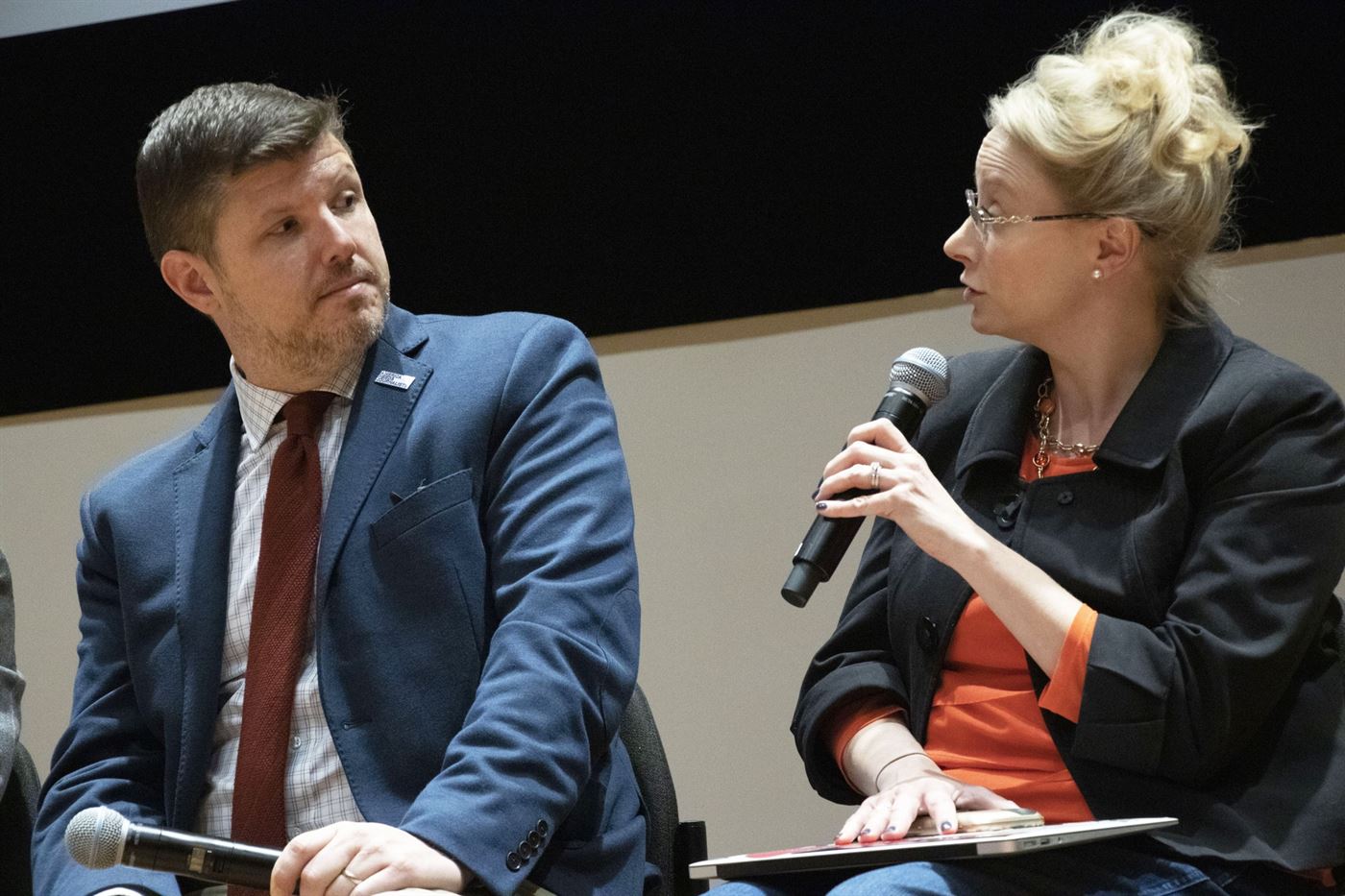The School of Communication and Media welcomed special guest speaker Kevin M. Lerner for a panel discussion at the Presentation Hall on the afternoon of Wednesday, Oct. 16.
Lerner is an assistant professor of journalism at Marist College in Poughkeepsie, New York. He recently published his popular book “Provoking the Press: (MORE) Magazine and the Crisis of Confidence in American Journalism,” which came out in May and was the main topic of discussion at the panel. He is currently working on a new book.

Kevin M. Lerner participates in the panel discussion at the colloquium on Wednesday, Oct. 16, at the presentation hall in the School of Communication and Media. Annabel Reyes | The Montclarion
Lerner earned his Bachelor of Arts in nonfiction writing from the University of Pennsylvania, where he was initially an English major. He also earned his Master of Arts from Columbia University Graduate School of Journalism, as well as his PhD from Rutgers University School of Communication and Information.
Lerner’s areas of interest are in press criticism, the intellectual history of journalism and journalism and satire, topics which were discussed at the colloquium. He is known for being the founding editor of the website for Architectural Record magazine, where he was part of a team that won the National Magazine Award.
Many of his works have been published in The New York Times, The Washington Post, New York magazine, Slate, The Columbia Journalism Review and The Nieman Lab.

An assistant professor of journalism at Marist College, Kevin M. Lerner, speaks at the colloquium alongside the director of the School of Communication and Media, Keith Strudler (left), the director of the Center for Cooperative Media, Stefanie Murray (right), and an adjunct faculty member of the School of Communication and Media, Jamie Bedrin (far right), on Wednesday, Oct.16, at the presentation hall in the School of Communication and Media. Annabel Reyes | The Montclarion
Like Lerner, the audience was also inspired by Stefanie Murray, the Director of the Center of Cooperative Media, and Jaime Bedrin, an adjunct faculty member at the School of Communication and Media. The three faculty members were interviewed in a Q&A panel discussion hosted by Keith Strudler, director of the School of Communication and Media.
Mariah Acree, a senior communication studies major and anthropology minor, believed that one of the most interesting takeaways from the panel was media bias.
“After reflecting on today’s colloquium, what really stayed with me was the information regarding the bias nature of each and every news publication,” Acree said.

Montclair State University students listen to the panel discussion at the colloquium on Wednesday, Oct. 16, in the presentation hall in the School of Communication and Media. Annabel Reyes | The Montclarion
Acree shared her thoughts on the issue of determining whether or not news can be trustworthy.
“I find it quite frightening to know that readers, unless highly educated in media criticism, have no real way of determining whether or not a publication is spreading truth, lies, or a clever combination or both,” Acree said. “Taking this information into consideration, as well as what I’ve gathered during my time as a communications student, I have reason to believe that news these days is generally non-trustworthy. It makes me wonder if news was ever really trustworthy.”
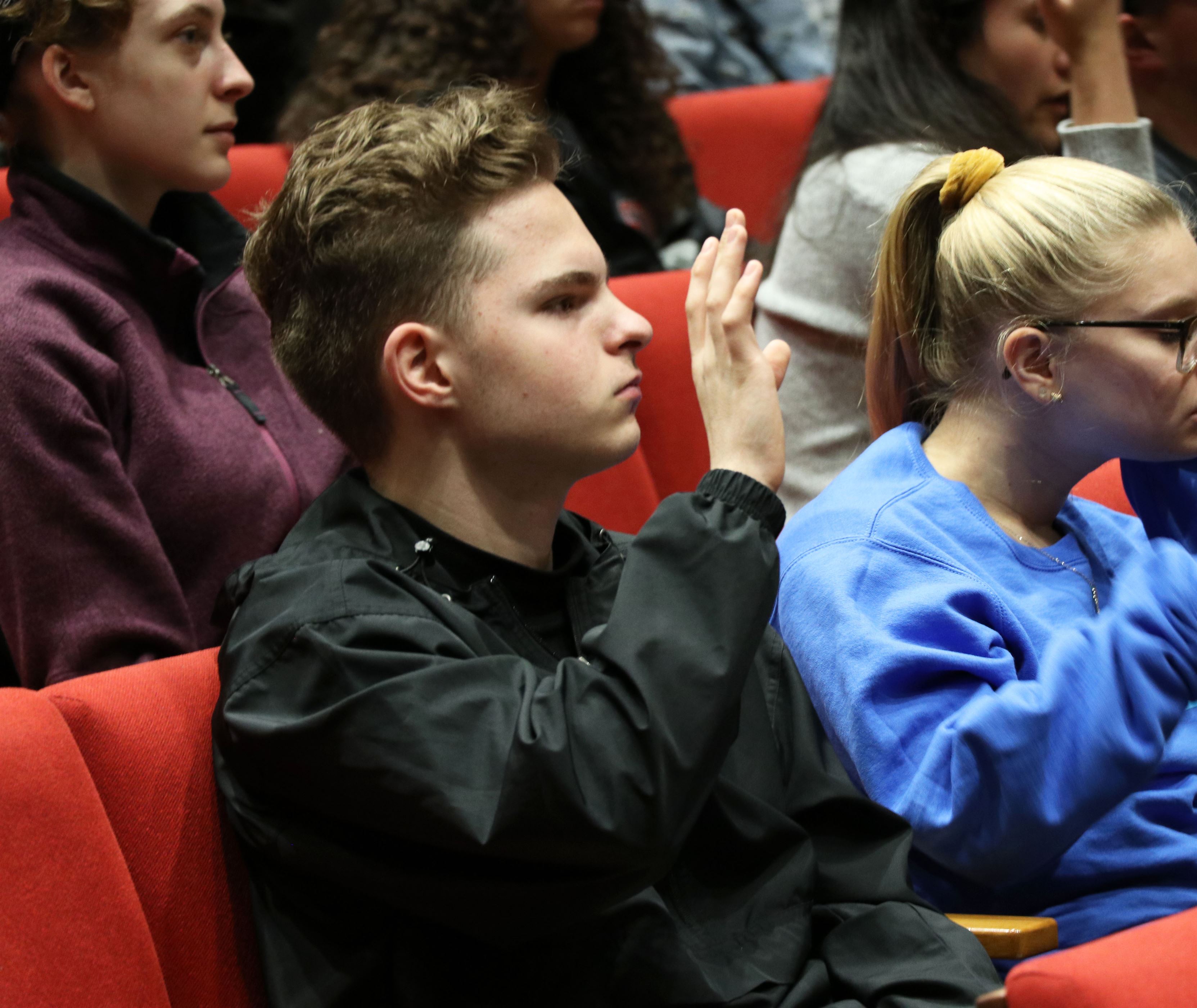
A Montclair State University student raises his hand to ask a question during the panel discussion at the colloquium on Wednesday, Oct. 16, in the presentation hall in the School of Communication and Media. Annabel Reyes | The Montclarion
Debbie Bonora, a junior and public relations major, shared that the colloquium taught her a lot of new things.
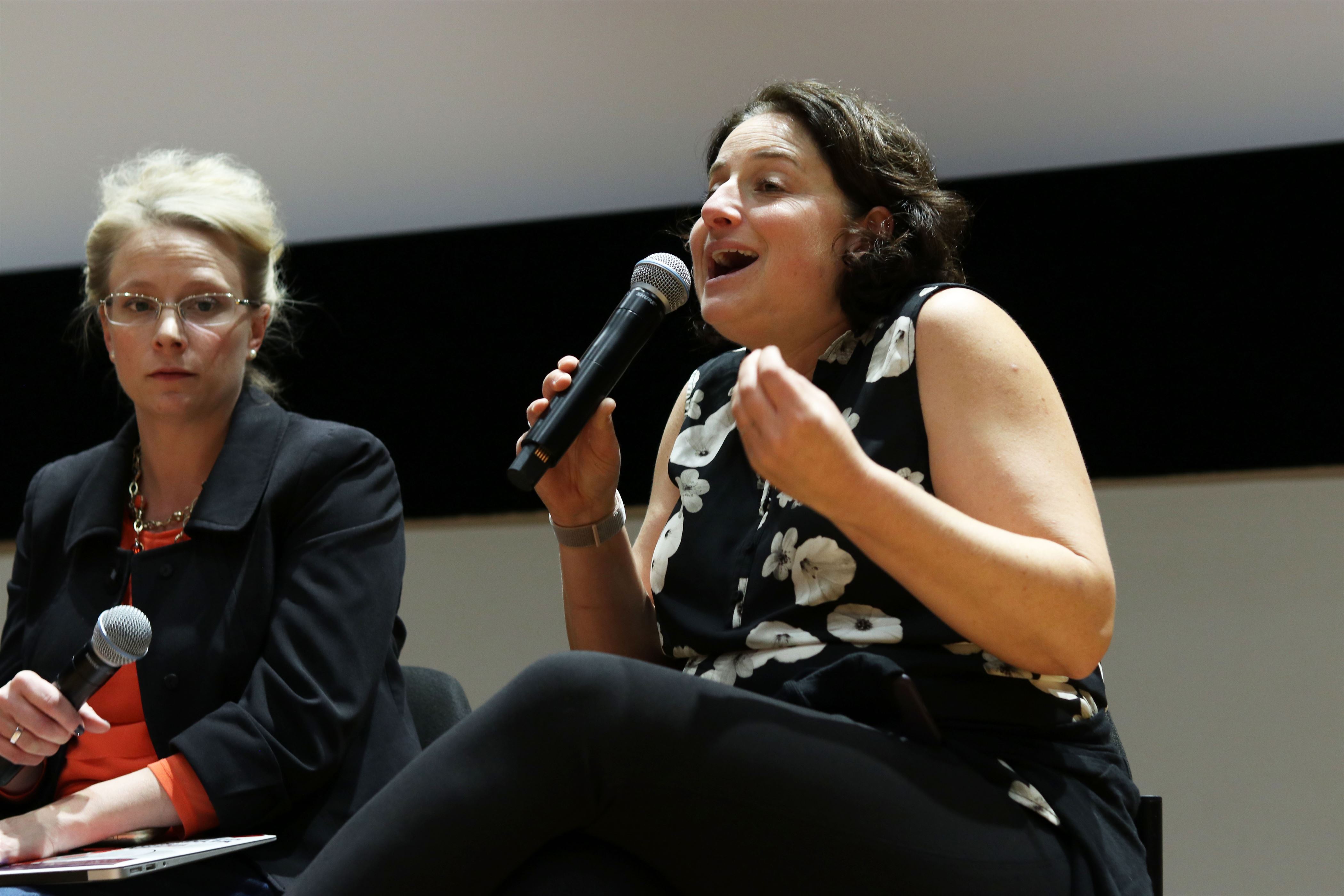
Jamie Bedrin participates in the panel discussion at the colloquium in the presentation hall in the School of Communication and Media. Annabel Reyes | The Montclarion
“I thought that the colloquium was really interesting and fascinating,” Bonora said. “I didn’t really know anything about the topic prior [to this], so it was almost all completely new information.”
Laiya Jackson, a sophomore and communication and media arts major, said that her favorite part of the colloquium was when Lerner discussed the ways that reporters worked to gain trust from the public in an era of subjective news reporting.
Sheyla Baez, a senior communication and media arts major, thought that the presentation was very interesting.
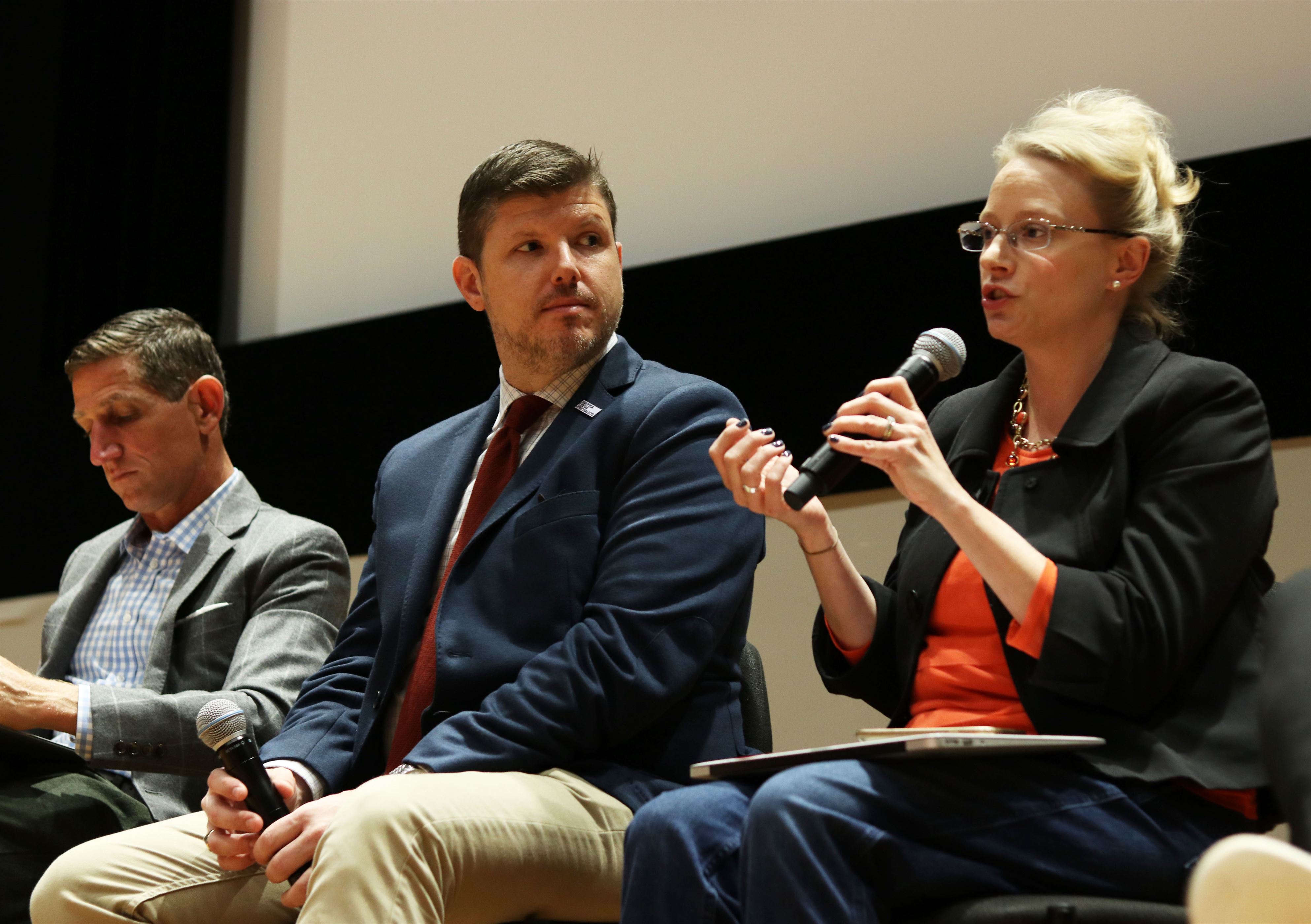
Stefanie Murray speaks during the panel discussion at the colloquium on Wednesday, Oct. 16, in the presentation hall in the School of Communication and Media alongside Kevin M. Lerner (left) and Keith Strudler (far left). Annabel Reyes | The Montclarion
“Especially when [Lerner] talked about the difference between objective and subjective news. Journalists choose to cover the stories they are interested in,” Baez said. “They decide on what angle to take a story based on preference or belief, making their content subjective. It’s scary to think that we can all see or hear the same set of facts, but interpret them in completely different ways.”
The most important message that Lerner hoped students would take from the panel discussion is media literacy, the ability to critically evaluate messages in a variety of forms.
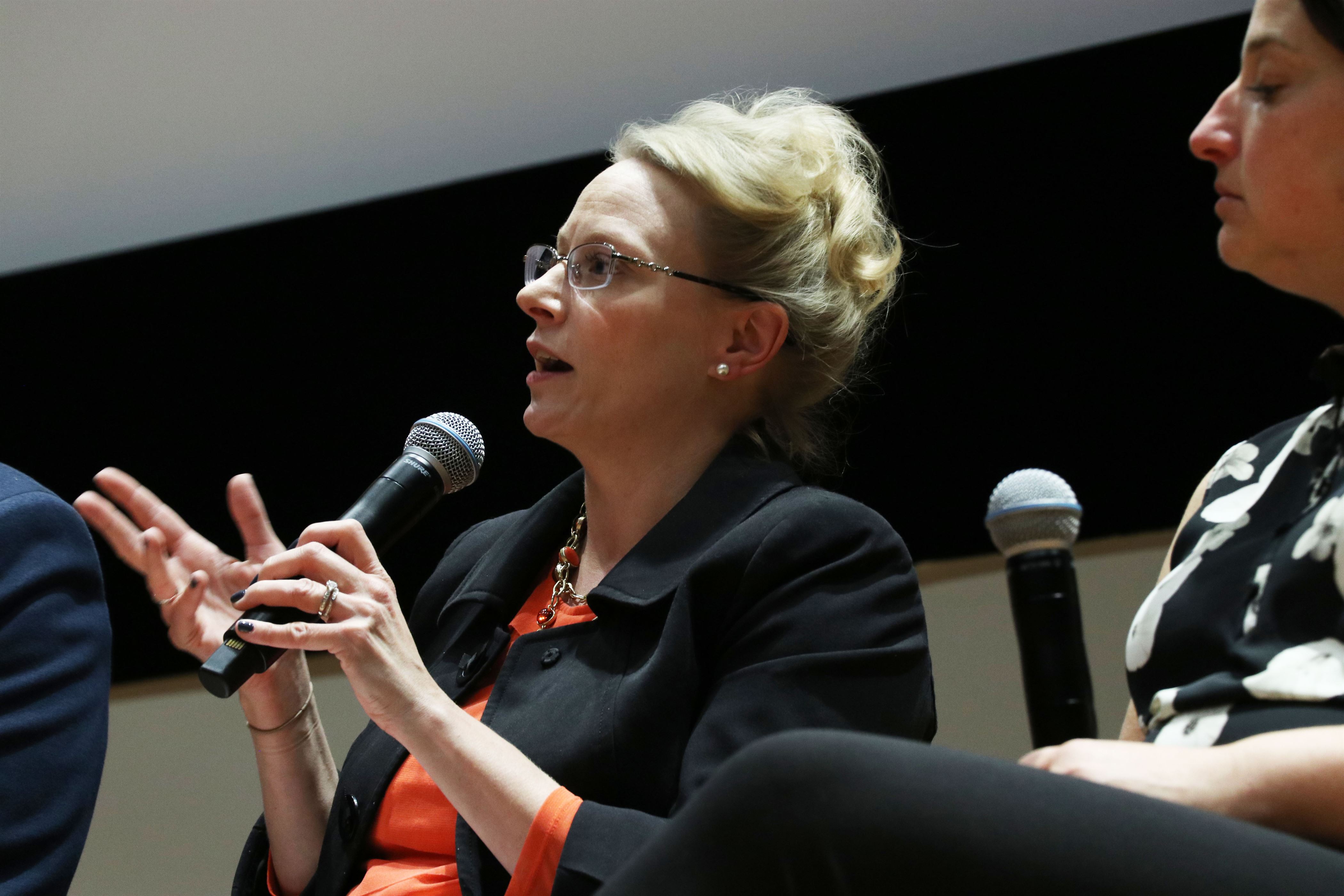
Stefanie Murray participates in the panel discussion at the colloquium on Wednesday, Oct. 16, in the presentation hall in the School of Communication and Media. Annabel Reyes | The Montclarion
“You need to be a reader, listener or viewer. I think that the ‘fake news’ claim has caused a lot of people to be skeptical of the press, but for the most part, you shouldn’t be,” Lerner said. “The vast majority of journalists are doing their best to give you the best version of the truth that they can on any given day, and only a few bad actors are actively trying to poison public discourse.”
The discussion with Lerner proved to be a very valuable learning experience for all who attended, as students walked away from the event more knowledgable than before.

